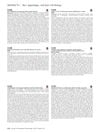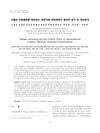
Bee pollen, green tea, essential oils, and various plant extracts improve skin and hair health.
 July 2023 in “Research Square (Research Square)”
July 2023 in “Research Square (Research Square)” Skin's uneven surface and hair follicles affect its stress and strain but don't change its overall strength, and help prevent the skin from peeling apart.
 June 2023 in “Medical records-international medical journal”
June 2023 in “Medical records-international medical journal” Decreased IGF-1R expression may contribute to sacrococcygeal pilonidal sinus development.
 May 2023 in “Animal Reproduction Update”
May 2023 in “Animal Reproduction Update” High levels of cortisol in hair show long-term stress which can lower fertility in animals.
 January 2023 in “Journal of pharmacognosy and phytochemistry”
January 2023 in “Journal of pharmacognosy and phytochemistry” Herbal home remedies can effectively treat hair loss with fewer side effects.
 September 2022 in “Frontiers in genetics”
September 2022 in “Frontiers in genetics” A Chinese male with a new genetic mutation has a skin condition and severe urinary issues, with treatments having mixed success.
 June 2022 in “International journal of research and review”
June 2022 in “International journal of research and review” The article concludes that early diagnosis and lifestyle changes can prevent complications from high uric acid levels.
 September 2021 in “Research Square (Research Square)”
September 2021 in “Research Square (Research Square)” Not having enough or having too much of the protein Grainyhead-like 3 leads to various developmental problems.

Wild African goats have genetic adaptations for surviving harsh desert conditions.

Plant roots respond to fungus smells by possibly using certain proteins and a plant hormone to change root growth, but more research is needed.

Silk sericin dressing with collagen heals wounds faster and improves scar quality better than Bactigras.
 November 2020 in “Elsevier eBooks”
November 2020 in “Elsevier eBooks” Antiandrogens and androgen inhibitors like spironolactone, finasteride, and dutasteride can treat hair loss and skin conditions, but they have risks and side effects, including potential harm to pregnant women and risks of cancer and heart issues. Herbal remedies also have antiandrogenic effects but lack safety validation.
 September 2020 in “bioRxiv (Cold Spring Harbor Laboratory)”
September 2020 in “bioRxiv (Cold Spring Harbor Laboratory)” Different fish use the same genes to regrow teeth.
 January 2020 in “arXiv (Cornell University)”
January 2020 in “arXiv (Cornell University)” Some existing drugs and natural products might work against COVID-19 by targeting the virus's main protease.

Accurate diagnosis and tailored treatments are crucial for managing hair loss in humans and animals.
 April 2019 in “Advances in Cosmetic Surgery”
April 2019 in “Advances in Cosmetic Surgery” The document concludes that ongoing medical therapy is crucial for preventing hair loss, and surgical options can restore hair, with future treatments for hair loss being promising.
 January 2019 in “ARC journal of pharmaceutical sciences”
January 2019 in “ARC journal of pharmaceutical sciences” Acne can be managed with various treatments and requires psychological support due to its emotional impact.
 April 2018 in “Journal of Investigative Dermatology”
April 2018 in “Journal of Investigative Dermatology” Glycogen metabolism is important for energy and processes in human hair follicles, and hair follicles may produce glucose from lactate.
 April 2018 in “Journal of Investigative Dermatology”
April 2018 in “Journal of Investigative Dermatology” Hair follicle stem cells can change their role to ensure proper hair development.
 April 2018 in “Journal of Investigative Dermatology”
April 2018 in “Journal of Investigative Dermatology” Stabilizing HIF1A in hair follicles increases glycolysis, which may help reduce oxidative stress and support hair growth.
 January 2018 in “Elsevier eBooks”
January 2018 in “Elsevier eBooks” The document concludes that alopecia has significant social and psychological effects, leading to a market for hair loss treatments.

Surgeons should evaluate new technologies critically, offer a range of services including non-surgical options, and be aware of marketing influences to meet patient needs and maintain a successful practice.
 March 2017 in “De Gruyter eBooks”
March 2017 in “De Gruyter eBooks” The Leechbook shows how hair and sexual health were key to medieval masculinity and some remedies may still be useful.
 April 2016 in “Plastic and reconstructive surgery. Global open”
April 2016 in “Plastic and reconstructive surgery. Global open” The supplement highlighted advancements and challenges in plastic and reconstructive surgery, including the impact of smoking, chemotherapy, and new treatments like Tafluprost for hair loss.
 January 2016 in “Human & Experimental Toxicology”
January 2016 in “Human & Experimental Toxicology” A specific DNA sequence caused hair loss in male mice by activating immune cells and increasing a certain immune signal.
 December 2014 in “Research and Reviews: Journal of Pharmacology and Toxicological Studies”
December 2014 in “Research and Reviews: Journal of Pharmacology and Toxicological Studies” Cabbage extract in hair gel may promote hair growth and could help treat hair loss.
 May 2014 in “Journal of Investigative Dermatology”
May 2014 in “Journal of Investigative Dermatology” Scientists developed tools to observe hair regeneration in real time and assess skin health, using glowing mice and light-controlled genes.

Keratin hydrogels from human hair show promise for tissue engineering and regenerative medicine.
 April 2012 in “Informa Healthcare eBooks”
April 2012 in “Informa Healthcare eBooks” Alopecia areata is a common autoimmune condition causing varying hair loss, diagnosed by specific patterns of inflammation around hair follicles, with several treatment options available.
 March 2012 in “Daehan hwajangpum hakoeji/Daehan hwa'jangpum haghoeji”
March 2012 in “Daehan hwajangpum hakoeji/Daehan hwa'jangpum haghoeji” The cream with plant components increased skin collagen and the hair tonic promoted hair growth in mice.






























